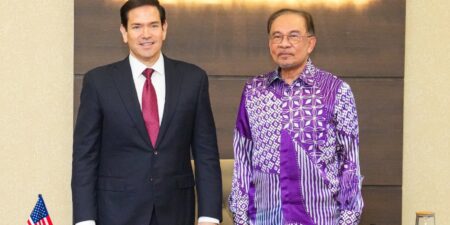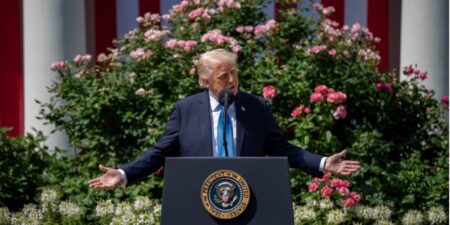The BGA Philippines Team, led by Managing Director Victor Andres Manhit, wrote an update to clients on the declining popularity of Philippines’ leadership.
Context
- Philippine President Ferdinand Marcos Jr. and Vice President Sara Duterte are experiencing a significant dip in their approval and trust ratings two years into their term. The leaders’ declining popularity stands in stark contrast to the seeming abundance of political capital that characterized their first year in office. Their low ratings are mainly attributable to rising inflation, which has compounded the Philippines’ economic downturn. A critical mass of the Philippine population is starting to doubt Marcos and Duterte’s ability to govern effectively; the president’s approval rating declined from 80 percent to 65 percent.
- The Philippines’ overall inflation increased to 6.1 percent in September from 5.3 percent in August, according to the latest data from the Philippine Statistics Authority. This brings the national average inflation from January to September to 6.6 percent. The increase was primarily due to the higher food and non-alcoholic beverage prices, which rose 9.7 percent from the previous year. Higher rice prices were the main contributor to food inflation, which grew 17.9 percent.
Significance
- Economic issues are among the top concerns of Filipinos, according to Pulse Asia Research’s third-quarter survey. Roughly 74 percent of Filipinos are worried about inflation, which increased 11 percentage points compared to the previous quarter. Ranked in terms of priority, this was followed by increasing workers’ pay (49 percent), creating more jobs (27 percent), reducing poverty (25 percent) and fighting government graft and corruption (22 percent).
- The Philippine CEO Survey 2023 of PwC Philippines and the Management Association of the Philippines found that CEOs are not satisfied with the government’s performance in fighting corruption. This finding indicates that the administration must do more to promote transparency and accountability and implement good governance reforms and initiatives.
- The central bank found that business confidence in the economy dropped to 35.8 percent in the third quarter from the previous quarter’s 40.8 percent. Contributing factors include expectations of a decline in sales and demand for goods and services due to weather-related disruptions and other seasonal factors, higher raw material prices and production costs, elevated inflation and interest rates and currency depreciation. These findings suggest that the business outlook could be improved by creating a more enabling business environment, creating more opportunities for business expansion and developing measurable goals to ease inflation.
Implications
- The Philippines’ political climate may impact the business environment, affecting consumer behavior, investment inflows, regulatory proposals and overall economic stability. Businesses should closely monitor these developments and adapt their strategies as needed to navigate potential challenges.
- Amid chronic inflation and socioeconomic problems, budget priorities need to be linked more closely with the population’s urgent concerns. The government should do more to attract high-impact investments that create more and higher-quality jobs, promote the ease of doing business and provide better social protection. Mitigating inflation and accelerating infrastructure development should also be prioritized. The president is expected to approve the proposed PHP 5.8 trillion ($102 billion) national budget before the end of the year.
We will continue to keep you updated on developments in the Philippines as they occur. If you have any questions or comments, please contact BGA Philippines Managing Director Victor Andres Manhit at vmanhit@bowergroupasia.com.
Best regards,
BGA Philippines Team

Managing Director
Dindo is recognized as one of Manila’s most well-connected and savvy advisors on developments in government and business in the Philippines. Concurrent to his role as managing director for BGA’s operations in the Philippines, he is also the founder and managing director of the Stratbase Group and president of its policy think tank, the Albert del Rosario Institute for Strategic and International Studies. Since 1991, Dindo has served as a member of the faculty and is the former chair of the Political Science Department and a senior fellow of the La Salle Institute of Governance at the De La Salle ...
Read More


























